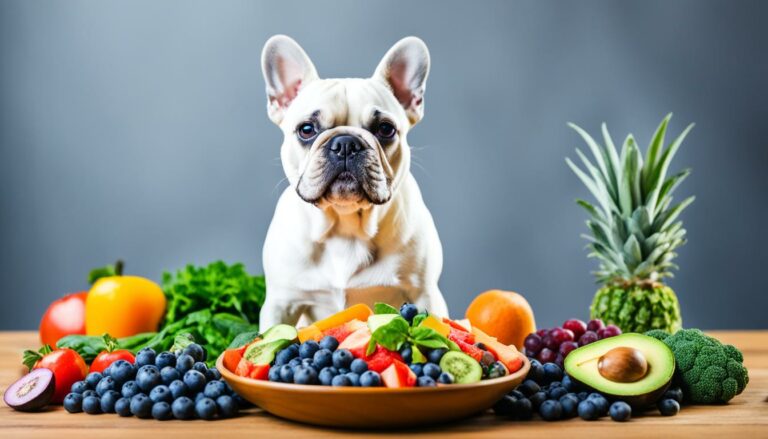Welcoming a French Bulldog puppy into your home is an exciting time, filled with cuddles, playtime, and the joyous chaos of a new family member. As a dedicated owner, ensuring your Frenchie pup receives the best possible start in life is paramount, and at the heart of their healthy development lies optimal nutrition. French Bulldogs, with their distinctive compact build and rapid growth phase, have specific dietary needs that differ significantly from other breeds. Providing a meticulously balanced diet from day one is not just beneficial; it’s absolutely crucial for building a strong foundation for their long-term health, energy, and well-being in 2025 and beyond.
Key Takeaways
- French Bulldog puppies require a species-appropriate, balanced diet rich in high-quality proteins, healthy fats, and complex carbohydrates to support their unique growth and energy needs.
- Always choose puppy food specifically formulated for small breeds, ensuring it carries an AAFCO statement for complete and balanced nutrition, to ensure optimal development.
- Establish a consistent feeding schedule with precise portion control to regulate their digestive system, prevent overeating, and maintain a healthy weight.
- Vigilantly monitor your puppy’s weight, coat condition, and energy levels, consulting your veterinarian immediately for any dietary changes or concerns, particularly regarding food allergies or sensitivities.
- Strictly avoid common household toxins such as chocolate, onions, garlic, grapes, and xylitol, which are extremely dangerous and can be life-threatening for French Bulldog puppies.
The Foundation of French Bulldog Puppy Nutrition in 2025

Understanding your French Bulldog puppy’s nutritional needs is the cornerstone of responsible pet ownership. As a small, brachycephalic breed, their unique physiology dictates specific dietary considerations. Their rapid growth during the first year requires a higher caloric and nutrient density compared to adult dogs. This includes particular attention to the balance of macronutrients (proteins, fats, carbohydrates) and micronutrients (vitamins and minerals) to support bone development, muscle growth, and a robust immune system.
It is highly recommended to consult with your veterinarian early on to tailor a nutrition plan that suits your individual puppy’s age, weight, activity level, and any specific health considerations. A timely first vet visit can set the stage for a lifetime of healthy eating habits and address potential concerns before they arise.
Essential Macronutrients for Growth and Energy
The Critical Role of High-Quality Protein
Protein is an indispensable macronutrient for your growing French Bulldog puppy. It serves as the primary building block for muscles, tissues, enzymes, and hormones, all vital for their rapid development. For optimal growth, puppies require a diet rich in high-quality, animal-based proteins. Look for ingredients like chicken, beef, lamb, turkey, or fish at the top of the ingredient list in their food. These sources provide a complete amino acid profile, essential for developing a strong physique and a healthy immune system.
Ensuring a healthy nutritional foundation through adequate protein intake is crucial. If you’re considering supplements for French Bulldogs, always discuss protein levels and sources with your vet to avoid imbalances.
Understanding Healthy Fats: More Than Just Energy
While often misunderstood, healthy fats are a vital component of your French Bulldog puppy’s diet. They are a concentrated source of energy, crucial for their active lifestyle, and play a pivotal role in brain and eye development. Essential fatty acids like Omega-3s (e.g., from fish oil) and Omega-6s (e.g., from chicken fat, flaxseed) contribute significantly to a healthy, shiny coat, skin integrity, and anti-inflammatory processes. However, balance is key; excessive fat can lead to obesity, so choose puppy foods with appropriate fat content.
Choosing Complex Carbohydrates for Sustained Energy
Carbohydrates provide readily available energy for your French Bulldog puppy’s playful antics and sustained growth. The key is to select complex carbohydrates, which are digested slowly, providing a steady release of energy and preventing blood sugar spikes. Good sources include whole grains like brown rice, oats, and barley, as well as nutrient-rich vegetables such as sweet potatoes and peas. These also provide essential dietary fiber, promoting healthy digestion and regular bowel movements, unlike simple carbohydrates found in refined grains or sugars, which offer little nutritional value.
Micronutrients: The Building Blocks for a Healthy Future

**Option 1 (If the image is abstract/artistic):**
> Decoding the abstract: a visual exploration of 967d0af0, where f357 meets the enigmatic a4373bfda426. A symphony of color and form.
**Option 2 (If the image is related to technology/data):**
> Diving deep into the data stream: visualizing the complex relationship between 967d0af0 and the f357/a4373bfda426 architecture.
**Option 3 (If the image is a product/object with a code):**
> Unboxing innovation! The future is here, coded with 967d0af0 and powered by f357/a4373bfda426.
**Option 4 (If the image is a location/map):**
> Exploring uncharted territories: 967d0af0 marks the spot where f357 intersects with the landscape of a4373bfda426.
**To give you the BEST caption, please tell me:**
* **What is the image of?** (e.g., a landscape, a person, a product, abstract art, code, etc.)
* **What is the overall tone you want to convey?** (e.g., mysterious, exciting, informative, playful, etc.)
Once I have that information, I can create a much more compelling and relevant caption!
Essential Vitamins and Minerals for Optimal Development
Beyond macronutrients, a complex array of vitamins and minerals is essential for your French Bulldog puppy’s growth and overall bodily functions. Calcium and phosphorus, in the correct ratio, are critical for strong bone development, preventing issues like skeletal deformities. Vitamin D is necessary for calcium absorption, while vitamins A, E, and C support vision, skin health, and immune function. Trace minerals like zinc, selenium, and iron also play crucial roles in various metabolic processes.
Reputable commercial puppy foods are meticulously formulated to provide these essential vitamins and minerals in the correct proportions. Avoid adding extra supplements without veterinary guidance, as too much of certain nutrients can be as harmful as too little.
Selecting the Best Food for Your French Bulldog Puppy
Navigating Commercial Puppy Food Options
The market for puppy food can be overwhelming. When choosing the best food for your French Bulldog puppy, prioritize brands that explicitly state they are formulated for puppies and small breeds. Look for an AAFCO (Association of American Feed Control Officials) statement on the label, which indicates the food meets established nutritional standards for growth. Focus on high-quality ingredients, with real meat as the first ingredient, and avoid artificial colors, flavors, and excessive fillers. Reading reviews and consulting your vet about specific brands is always a wise approach when choosing the right puppy food.
For a deeper dive into feeding options, explore our Master Guide to French Bulldog Food 2025.
Addressing Food Sensitivities and Allergies
French Bulldogs can be prone to food sensitivities or allergies, which may manifest as skin irritations, chronic ear infections, or digestive upset. If you suspect an allergy, consult your veterinarian. They may recommend an elimination diet to pinpoint the culprit, often a common protein source (like chicken or beef) or grain (like corn or wheat). Special hypoallergenic or grain-free diet formulations are available, but always under veterinary guidance. Learning about managing food sensitivities is crucial for their comfort and health.
Homemade Meals: A Consideration (with caution)
While some owners opt for homemade meals for French Bulldogs, it’s a path that requires extreme caution and meticulous planning. Formulating a nutritionally complete and balanced diet for a growing puppy is complex and challenging. Nutritional deficiencies or excesses can lead to severe health problems. If you choose this route, work closely with a veterinary nutritionist to ensure all essential nutrients are provided in the correct proportions.
Crucial Feeding Practices for Your French Bulldog Puppy

Establishing a Consistent Feeding Schedule and Portion Control
Consistency is key for your puppy’s digestion and overall health. French Bulldog puppies typically require three to four small meals per day until around six months of age, gradually reducing to two meals as they mature. Avoid free-feeding, which can lead to overeating and obesity. Always measure food portions precisely according to your chosen food’s guidelines and your veterinarian’s recommendations. For a detailed guide, refer to our French Bulldog Puppy Feeding Guide.
The Importance of Gradual Diet Transition
When changing your puppy’s food, whether due to age, allergies, or a brand switch, a gradual transition is vital to prevent digestive upset. Over 7-10 days, slowly mix increasing amounts of the new food with decreasing amounts of the old food. Start with 25% new food and 75% old food for a few days, then move to 50/50, then 75/25, until you’re feeding 100% new food. Monitor their stool and appetite throughout this process.
Protecting Dental Health Through Diet
Good nutrition isn’t just about internal health; it also impacts dental health. Dry kibble can help mechanically clean teeth as your puppy chews, reducing plaque and tartar buildup. Consider dental-specific treats or chews, but always ensure they are appropriate for puppies and don’t contribute excessive calories. Regular dental care tips for French Bulldogs, including brushing, are also essential, even from a young age. For more information, check out our guide on French Bulldog dental care.
Monitoring Health: Weight, Energy, and Red Flags
Tracking Your Puppy’s Growth and Weight
Regularly monitoring your French Bulldog puppy’s weight is crucial. Puppies should gain weight steadily, but not rapidly, to avoid putting undue stress on their developing joints. Consult your veterinarian for an ideal weight range for your puppy’s age and breed. Any sudden weight loss or gain should be investigated. Effective weight management starts young, and understanding obesity prevention strategies is key to a healthy future.
Recognizing Signs of Nutritional Imbalance or Illness
Beyond weight, observe your puppy’s overall demeanor. A healthy puppy will have a shiny coat, clear eyes, good energy levels, and consistent, well-formed stools. Signs of potential nutritional problems or illness include lethargy, dull coat, persistent diarrhea or vomiting, excessive gas, or changes in appetite. These symptoms warrant immediate veterinary attention. Our French Bulldog Puppy Care Bible and essential puppy care tips offer comprehensive advice.
Avoiding Harmful Foods and Toxins

Keeping your French Bulldog puppy safe means being acutely aware of common household foods and substances that are toxic to dogs. Never feed them:
- Chocolate: Contains theobromine, highly toxic, leading to vomiting, diarrhea, rapid breathing, and heart palpitations.
- Onions and Garlic: Can cause anemia. This includes powdered forms found in many human foods.
- Grapes and Raisins: Can lead to acute kidney failure, even in small amounts.
- Xylitol: A sugar substitute found in gum, candies, and some peanut butters, it causes a rapid release of insulin, leading to dangerously low blood sugar and liver damage. Always check ingredient labels!
- Avocado: Contains Persin, which can be toxic to some animals.
- Alcohol and Caffeine: Extremely dangerous, even in small quantities.
- Bones (cooked): Can splinter and cause internal damage. Raw bones carry risks of bacterial contamination.
Always keep these items out of reach and be cautious when preparing human food or sharing snacks. When in doubt, err on the side of caution and consult your veterinarian.
Conclusion
Providing optimal French Bulldog Puppy Nutrition is one of the most significant investments you can make in your furry companion’s health and happiness. By understanding their unique dietary needs, selecting high-quality food, adhering to proper feeding practices, and vigilantly monitoring their well-being, you’ll ensure your Frenchie pup grows into a robust, joyful, and cherished member of your family. Always partner with your veterinarian to navigate the best nutritional path for your beloved French Bulldog.
Helpful Resources & References

- Best French Bulldog Puppy Food 2025: Vet Recommended best dog …
- Essential Nutritional Guide for French Bulldog Puppies
- French Bulldog Puppy Nutrition: What Every Pet Parent Should Know
- Daily Care for French Bulldog Puppies – NW Frenchies
- How to Choose the Best French Bulldog Diet – Human-Grade Pet Food
Hi, I’m Alex! At FrenchyFab.com, I share my expertise and love for French Bulldogs. Dive in for top-notch grooming, nutrition, and health care tips to keep your Frenchie thriving.


